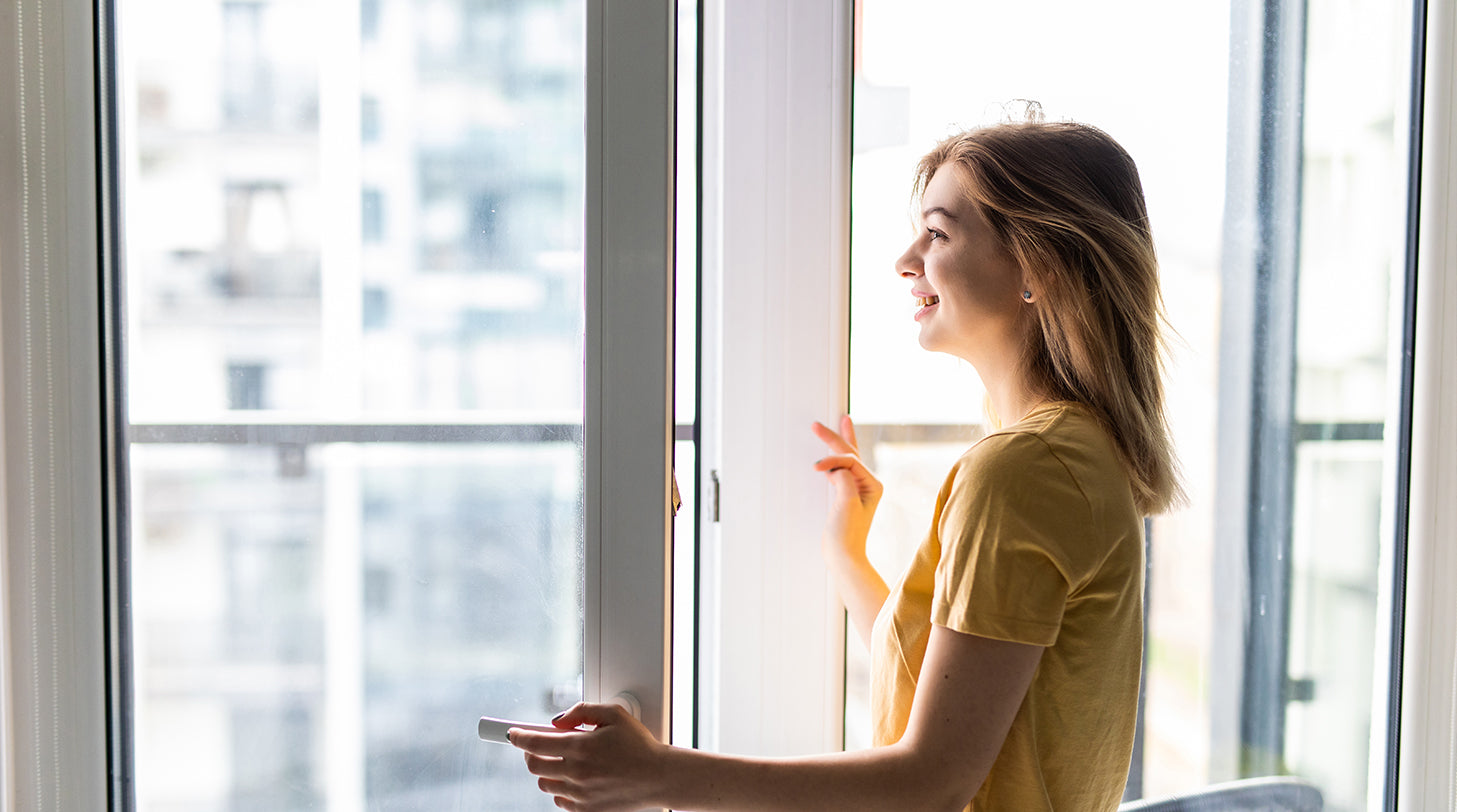What is the difference between outdoor air in summer and outdoor air in winter, and how does this affect the ventilation of a room? This article gives you tips on how to ventilate properly even in summer.
Why ventilation is important in summer
In the summer, outdoor temperatures are usually higher than room temperature. However, warm air contains more water than cold air at the same relative humidity. If you open your windows when it's warmer outside than inside your apartment, you're not only letting heat in, you're also letting moisture in. If the temperature drops overnight, the humid air in the room will also cool down; the humidity is rising.
Increased humidity is considered unpleasant, especially in high temperatures, because sweat is less able to evaporate. Therefore, the cooling effect originally used to regulate body temperature is not present. As a result, circulatory problems may occur more quickly.
High humidity in a house can also settle on windows and walls, creating ideal conditions for mold to grow. This is a serious strain on your health and can also damage the masonry in the long run.
How to properly ventilate in summer
Even if it's warm outside, you shouldn't tilt your windows all day long. During the day, fresh air is warmest and therefore most humid. It's best to ventilate at night or in the morning when it's as cool as possible outside. For effective air exchange, you need to open the windows for impingement ventilation. However, this may take longer than in the winter, about 20 to 25 minutes is useful.
The smaller the temperature difference between indoor and outdoor, the slower the air exchange. To help, open several windows in your apartment at the same time and keep interior doors open. This type of cross ventilation works best if you have windows on two sides of the house, thus providing ventilation. If you don't have this option or the air is still stagnant, you can help the fan and speed up the air exchange.
You can tilt your windows at night if the outside temperature is cooler than room temperature at night. In the summer, your heating is probably off anyway, so it's not a waste of energy. On the other hand, during the day, it's best for your indoor climate if you keep your windows closed to keep in the warm, moist air outside. To prevent the indoor temperature from rising too much, it helps to shade the windows from the outside. Good insulation of the house is also required.
How to properly ventilate your basement in summer
Your basement is most affected by excess humidity due to cooler temperatures: as warm outside air cools down in your basement, humidity can rise quickly. Here, it is especially important to ventilate only when the fresh air is drier than the basement air. Keep basement windows closed during the day, preferably early in the morning to ventilate! The warmer the outside temperature, the less moisture will enter the house when ventilating.
How technology can support you with ventilation
If you don’t want to make mistakes when ventilating, it’s best to invest in a hygrometer. With this device you can quickly and easily measure humidity locally. Try to keep the relative humidity in your living space between 40 and 60 percent through ventilation. Slightly higher humidity levels in basements are normal, but should not exceed 65% for extended periods of time.
If you want to know whether ventilation is allowed in the summer, you have to compare the absolute humidity in the basement and outside. If the absolute humidity indoors is lower than the humidity of the air outside, you can open the windows to let dry air into the house.
Some hygrometers only display relative humidity (e.g. 50%). To determine absolute humidity (e.g. 12 g/m³) you need to convert the relative humidity to an absolute value via temperature. You can also use free online tools for this.







